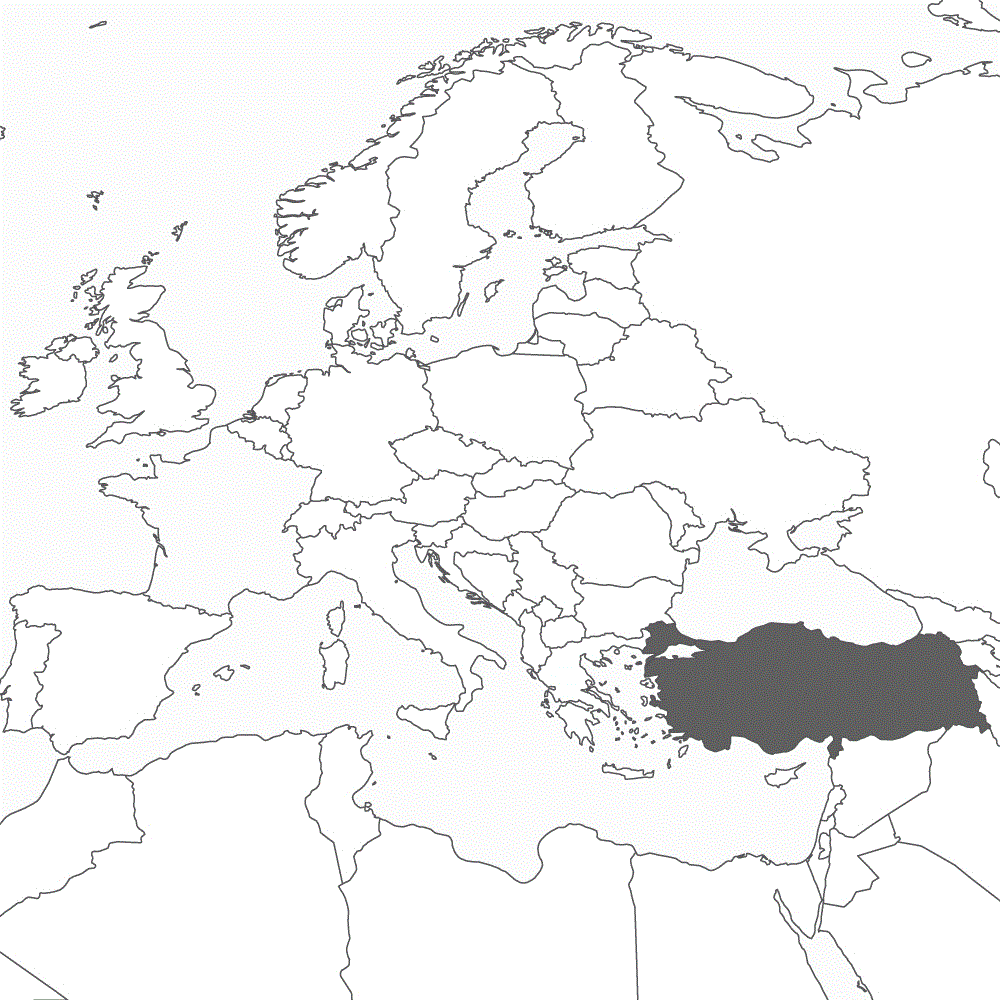Euro-Islamic Bridge
ISTANBUL (Own Report) During a two-day working visit in Turkey, the German foreign minister wants to promote Turkey's entry into the EU and to negotiate the price which Turkey must pay to Berlin. Likewise, the military experts of the German opposition argue for a speedy integration into the alliance system. The goal is ,,bringing Turkey closer to the European Union", in order to use that country as an outpost in approaching the Islamic world ( ,,war against international terrorism") and as a geo-strategic beachhead into Asia. According to Foreign Minister Joschka Fischer, who had just visited Istanbul, Turkey's future EU membership is ,,almost more important than a rocket defense system."
Turkey has been a candidate for entry into the EU for the past 40 years. Admission into the European Union had been announced repeatedly, but had been postponed again and again in spite of US pressure to proceed. Washington intended to stabilize this NATO country, which had been armed against Russia, economically and have the Europeans pay the cost. Since the end of the Cold War, the military policy significance of Turkey appeared to diminish and to be replaced by economic interdependence. In the land of cheap wages important production facilities of Western European industrial corporations (Fiat, Renault) had emerged. While the US paid for its cost-intensive military bases, leading members of the EU (among them especially Germany) profited from rising opportunities for earnings resulting from Turkish economic ,,liberalization."
Advancing conquest
After the USA extended its influence with military occupation of the Near and Middle East, this disparity could no longer be maintained. The Iraq war finally demonstrated that US military aggression deprives the leading EU members of their international business partners and reduces European advantage in the civilian economy. This experience led Berlin to the realization that more economic and military investments must be made in Turkey, in order to catch up with the USA and, possibly, have its own geo-strategic base at its disposal during the progressing conquest of the Near, Middle and Far East.
Key element
German foreign policy officials openly admit that Berlin's purpose for ,,bringing Turkey closer to the European Union"(foreign office) and building ,,a European-Islamic bridge" 1)is to start a ,,transmission belt" ,,all the way to the Caucasus" 2). The German Society for Foreign Policy (Deutsche Gesellschaft für Auswaertige Politik - DGAP) published an analysis of principles which concludes that Turkey presents ,,for European (...) policy (...) a geo-political key element par excellence" 3).
German sphere of influence
The DGAPs analysis confirms the traditional interest of German foreign policy in Turkey, which had always secured Istanbul as a stopover on the way to Asia. For example, already in World War I, Berlin demanded from its Turkish ally complete control over the rich Arab mineral resources, including deposits of phosphates, asphalt and manganese, which were still in the hands of the Ottoman Empire. Even at the end of the war, the foreign office expressed that ,,the oil wells of Mesopotamea must definitely come under the German sphere of influence;" 4)referring to the Mossul region in present day Iraq.
Intermediate periphery
German foreign policy is not inhibited by religious and cultural contradictions in the pursuit of its present interests in Turkey. The chairman of the foreign policy commission of the German Lower House of Parliament discovered, just in time, prior to the trip to Turkey, that it is possible to bridge over Catholic reservations against Turkey's entry into the European Union. According to that discovery, a ,,cradle of Christianity" 5)is located in Turkey ( ,,Asia Minor"). The former German minister of defense, referring to Berlin's European-core plans, weakens persistent apprehensions from the ranks of the Christian Social Union (CSU). According to those plans, the EU will grant full membership to Turkey in a decade and will impose on the Turkish citizens ,,long periods of freedom of movement". There will be ,,a core of European countries, others will be within the Schengen group (subject to open border agreement), while others will cooperate with defense policy. In other words there will be a Europe with diverse speeds", in which Turkey will have to belong into the intermediate periphery of Germany's expansion into Asia.
1) ,,Die Zusage an die Tuerkei gilt auch fuer die Union". Volker Ruehe (CDU) spricht sich fuer ernsthafte Beitrittsverhandlungen der EU aus; Sueddeutsche Zeitung 20.01.2004
2) Ulrike Guerot: Quantensprung fuer Europa; Frankfurter Allgemeine Zeitung 19.01.2004.
3) Geostrategische Aspekte der Tuerkei. Kann Europa von den USA lernen?; www.weltpolitik.net
4) Meeting 8. April 1918
5) ,,Die Zusage an die Tuerkei gilt auch fuer die Union". Volker Ruehe (CDU) spricht sich fuer ernsthafte Beitrittsverhandlungen der EU aus; Sueddeutsche Zeitung 20.01.2004
See also earlier article Threats
